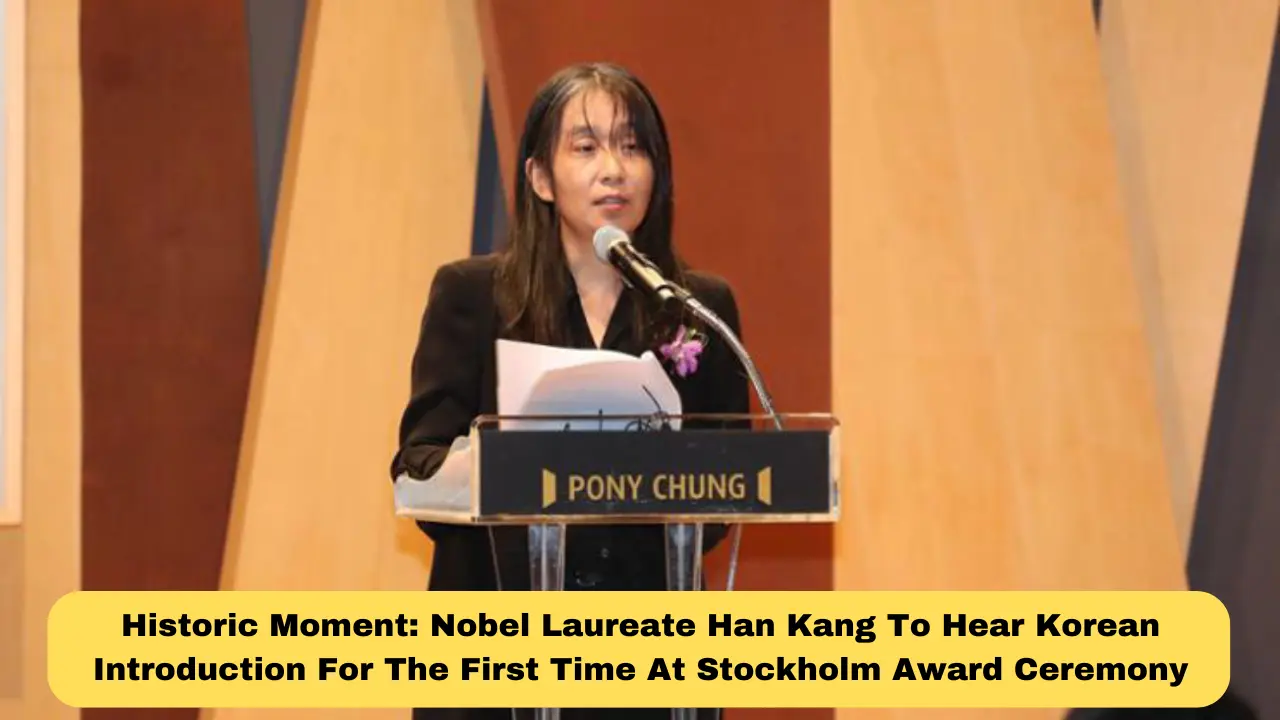In a remarkable moment for South Korea and fans of literature worldwide, Han Kang, the acclaimed novelist, and 2016 Man Booker International Prize winner, is set to hear her native Korean language resonate through the halls of Stockholm during the Nobel Prize ceremony. This year’s Nobel Prize for Literature has chosen Han Kang for her profound contributions to contemporary literature, a decision that has garnered international applause and pride among Koreans.
The introduction in Korean is a first for the prestigious event, a move that highlights the global influence of Korean culture and acknowledges the importance of linguistic diversity in today’s world of literature. For Han Kang, known for her reflective and often haunting works, this honor is both deeply personal and symbolic. Her writing, which delves into themes of human suffering, resilience, and beauty, will reach the hearts of attendees not only through her words but also through the resonant beauty of the Korean language itself. This groundbreaking decision marks a shift in the Nobel organization, which has traditionally conducted its ceremonies in Swedish and English, underscoring the growing global embrace of multilingualism.
Han Kang’s work first gained widespread attention with The Vegetarian, a novel that explores societal and familial conflict through the story of a woman who decides to stop eating meat. The book captivated readers worldwide for its raw exploration of personal choice and resistance in the face of societal pressure, themes that continue to define much of her work. Following The Vegetarian, her novel Human Acts received critical acclaim for its poignant portrayal of historical trauma in South Korea, further establishing her as one of the most insightful and empathetic voices in modern literature.
This Nobel recognition not only celebrates Han Kang’s storytelling but also shines a light on South Korean literature’s powerful narrative tradition. Over recent years, the country’s cultural impact has grown significantly, with Korean films, music, and television dramas finding enthusiastic audiences across the globe. Han Kang’s win and the introduction of Koreans at the Nobel ceremony further validate this cultural prominence, symbolizing a moment of pride for Korean literature and inspiring future generations of writers from diverse backgrounds.
As the world eagerly watches the Nobel Prize ceremony, this historic event in Stockholm will undoubtedly be a proud moment for Han Kang and for fans of her work. Hearing her achievements announced in her own language in such an international forum is a testament to her journey and her contributions to literature. Han Kang’s presence in Stockholm and the unprecedented Korean introduction underscore not just the achievements of one author, but also the profound impact of Korean voices in the global arts and cultural landscape.

